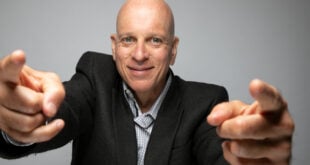Can you drink coffee after a hair transplant? Well, this is a very important question and would not be wrong if one asked this. Coffee has been well known to cause hair loss and it would cause serious hair loss. But some do want to know, can you drink coffee after a hair transplant? Now the answer is not straightforward at all. The simple answer is that yes you could but it all depends on your kind of transplant surgery and your body genes and metabolism.
How does coffee affect hair growth?
Coffee is one of the most popular beverages in the world. While coffee has several health benefits, it can also affect hair growth.
Coffee and Hair Growth
Coffee may cause shedding and thinning of hair as a result of oxidative stress. This is due to the presence of caffeine in coffee beans, which is an antioxidant and anti-inflammatory agent. It also contains other antioxidants such as phenols, chlorogenic acid and quinides that protect you from free radicals. A study published in the Journal of Cosmetic Dermatology found that drinking 4 cups of coffee per day had a significant effect on hair loss in women, but not men. The study also concluded that caffeine levels were higher among women than men.
(1). Coffee contains caffeine, which causes increased blood flow to the scalp and stimulates hair growth. This also increases circulation around your follicles which promotes faster healing after surgery or injury to the scalp area.
(2). Caffeine improves blood circulation by increasing nitric oxide levels in your body.
(3). Nitric oxide helps regulate blood pressure by relaxing your blood vessels, allowing more blood flow through them.
(4). Caffeine may also reduce inflammation by inhibiting.
Why can’t I drink coffee after a hair transplant?
The answer to this question is simple. Coffee, and other caffeinated drinks, are diuretics. This means that they make you urinate more often and in larger amounts. When you drink coffee or tea, your body gets rid of the liquid by releasing it through your kidneys and urine.
If you have undergone a hair transplant procedure, your doctor will usually recommend that you avoid drinking caffeinated beverages for at least 48 hours after the procedure. This is because caffeine has been shown to increase blood pressure and heart rate in some people. It can also cause nausea, vomiting and headaches. Caffeine can interfere with healing after surgery because it dilates blood vessels, causing more bleeding than usual at the site of the incision line.
Can I enjoy anything caffeinated?
You can enjoy anything caffeinated, but it’s best to keep it to a minimum.
Drinking too much coffee can be bad for your hair transplant results. The caffeine in coffee is a diuretic and causes the body to lose water. This in turn can cause dehydration that reduces the blood flow to the scalp and hair follicles.
Caffeine also has an effect on your hormone levels which can affect how quickly you grow new hair after a hair transplant procedure.
If you are drinking more than two cups of coffee per day, then I recommend reducing your intake by half until you reach one cup every other day. Once you have reached this level, then gradually increase it up to three cups per day over the next month or so.
Is there anything else I should avoid?
It’s important to avoid alcohol for two weeks after your procedure. If you choose to drink alcohol during this time, do so in moderation and make sure that you never mix it with caffeine or medications. The combination of these substances can cause increased heart rate, dizziness and even nausea. Avoid any other substances that might accelerate blood flow in the scalp, such as aspirin or ibuprofen (Advil).
Caffeine is safe to consume after a hair transplant procedure because it doesn’t have any negative effects on the scalp’s vascularity. In fact, studies suggest that caffeine may actually help reduce some of the side effects associated with increased blood flow in the scalp — like headaches and flushing — by reducing inflammation there.
Will Coffee Really Affect My Hair Transplant?
It’s well known that caffeine is a diuretic, so it’s likely that your body will get rid of some of the water in your system. But if you’re drinking coffee to stay awake and alert after getting a hair transplant, you might actually be helping yourself.
Caffeine’s effects on the body are varied and complex. It can act as an analgesic (painkiller), an anti-inflammatory, and even as an antioxidant. It also helps protect against type 2 diabetes and dementia by improving insulin sensitivity.
Coffee actually has many health benefits, like reducing the risk of certain cancers, lowering the risk of heart disease, and protecting against liver disease. Some studies have even shown that regular coffee drinkers may live longer than those who don’t drink coffee at all!
Why Is It Recommended to Avoid Coffee?
There are several reasons why your doctor may recommend that you avoid drinking coffee after a hair transplant surgery:
- It could cause an allergic reaction or aggravate existing allergies
- It can make your stomach upset or give you acid reflux symptoms (heartburn)
- It could trigger heartburn and other digestive problems such as diarrhea or bloating
- Coffee contains caffeine, which is a stimulant that can raise blood pressure and heart rate slightly.
 eTopical Precious Finds
eTopical Precious Finds


